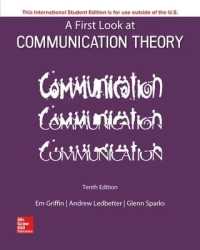Full Description
The editor and contributors ask how successful digital teaching materials can be developed, what are the unique benefits of this type of teaching and how it can be linked with industry and society so as to better aid the development of student learning.








